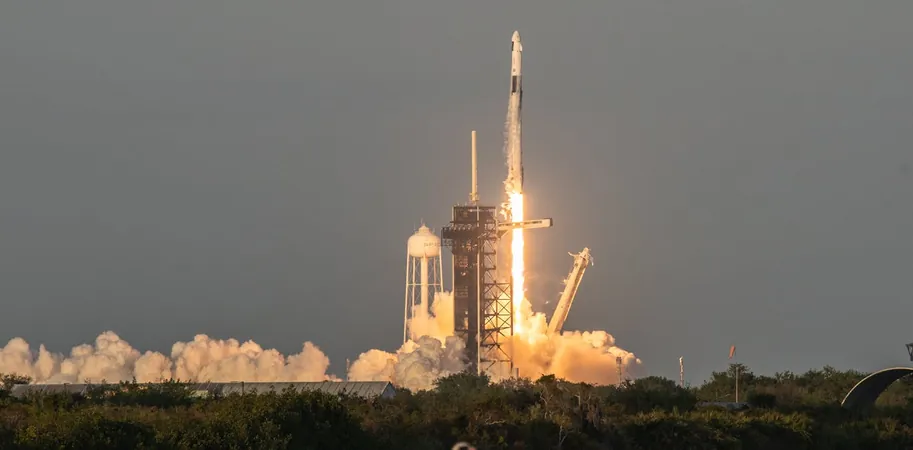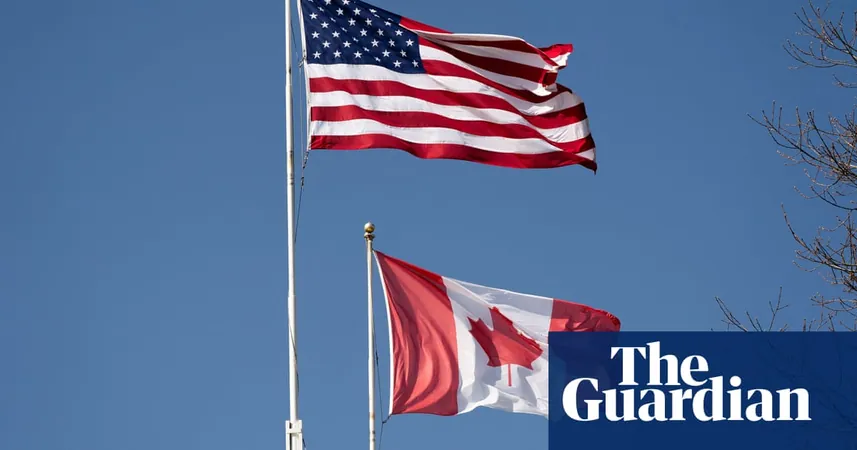
Rescued Astronauts Return to Earth: The Urgent Need for Space Law Reform Amidst Rising Commercial Space Travel
2025-03-18
Author: William
Astronauts Suni Williams and Butch Wilmore are finally back on solid ground, thanks to SpaceX’s Dragon capsule. After an arduous nine-month stint aboard the International Space Station, the duo can now breathe fresh air, having faced significant hardship following their unfortunate stranding in June 2024. Their Boeing Starliner spacecraft encountered serious malfunctions, rendering it too hazardous for a safe return to Earth. As if that weren’t enough, delays in the recovery mission—caused by issues on the launchpad—extended their stay even further.
NASA's task of orchestrating their rescue was unprecedented and challenging. While the successful return is a relief, it has sparked more profound concerns over the legal implications of space exploration. As commercial ventures begin to dominate the cosmos, questions arise about who is ultimately responsible when missions don’t go as planned.
The entry of civilian astronauts into space—exemplified by figures such as actor William Shatner and billionaires like Jeff Bezos and Richard Branson—has compounded these issues. With events like pop superstar Katy Perry and talk show host Gayle King preparing for Blue Origin’s upcoming NS-31 Mission, the space tourism industry is undeniably gaining momentum.
However, the current legal framework is woefully outdated, as it doesn’t adequately address the responsibilities of private companies engaged in space travel. As corporations like SpaceX, Blue Origin, Rocket Lab, and Virgin Galactic lead the charge in this new era, they find themselves in a legal quagmire that has not evolved to match the rapid pace of their ventures.
The Crucial Role of International Space Law
According to the United Nations Agreement on the Rescue of Astronauts, countries that are part of the treaty are obligated to assist astronauts in distress, regardless of their nationality. This obligation applies not only to missions that are still in space but also to those that crash land in territories or seas belonging to other states. Ensuring the safe return of astronauts to their country of origin remains a paramount concern.
Yet, ambiguity looms around whether private companies carry similar responsibilities. There is a growing fear that space tourists and private astronauts may be left without adequate legal protection in emergencies, raising questions about their safety and rights.
Space law itself originates from an era dominated by superpowers, most notably enshrined in the 1967 Outer Space Treaty, which did not anticipate the commercialization of space travel. This outdated perspective could leave future space tourists, like Williams and Wilmore, vulnerable in adverse situations.
A New Definition of ‘Astronaut’
Experts in space policy are urging for a broader interpretation of what constitutes an ‘astronaut.’ They advocate that rescue rights should be extended to all individuals engaged in space travel, thereby ensuring no one is abandoned due to their legal status. The existing treaties governing space activity do not address the burgeoning field of space tourism, leaving a significant gap in protection.
As private space endeavors push beyond low-atmosphere travel, with possibilities of sending tourists to Mars being discussed by industry leaders, the urgency for legal reform in space law cannot be overstated. There’s a strong argument for companies to share the burdens and responsibilities associated with rescue operations, especially as they cater to the growing demographic of space tourists.
While astronauts undergo extensive training and preparation—and are well aware of the risks involved in space missions—civilian space travelers may not be adequately informed of potential dangers. As this industry progresses, it becomes essential for companies to responsibly educate customers on the inherent risks and establish robust rescue protocols.
Without clear regulatory frameworks, space tourism companies may ask clients to sign liability waivers that forfeit their right to rescue. This poses a significant ethical dilemma: balancing human safety against corporate profit. The rapid evolution of commercial space exploration necessitates comprehensive reforms in space law to ensure the safety and rights of all individuals venturing into the final frontier.
As we usher in this new era of space exploration, the call for international cooperation and legal evolution has never been more pressing. Who will take the lead in protecting the rights of those who dare to journey beyond our planet?









 Brasil (PT)
Brasil (PT)
 Canada (EN)
Canada (EN)
 Chile (ES)
Chile (ES)
 Česko (CS)
Česko (CS)
 대한민국 (KO)
대한민국 (KO)
 España (ES)
España (ES)
 France (FR)
France (FR)
 Hong Kong (EN)
Hong Kong (EN)
 Italia (IT)
Italia (IT)
 日本 (JA)
日本 (JA)
 Magyarország (HU)
Magyarország (HU)
 Norge (NO)
Norge (NO)
 Polska (PL)
Polska (PL)
 Schweiz (DE)
Schweiz (DE)
 Singapore (EN)
Singapore (EN)
 Sverige (SV)
Sverige (SV)
 Suomi (FI)
Suomi (FI)
 Türkiye (TR)
Türkiye (TR)
 الإمارات العربية المتحدة (AR)
الإمارات العربية المتحدة (AR)